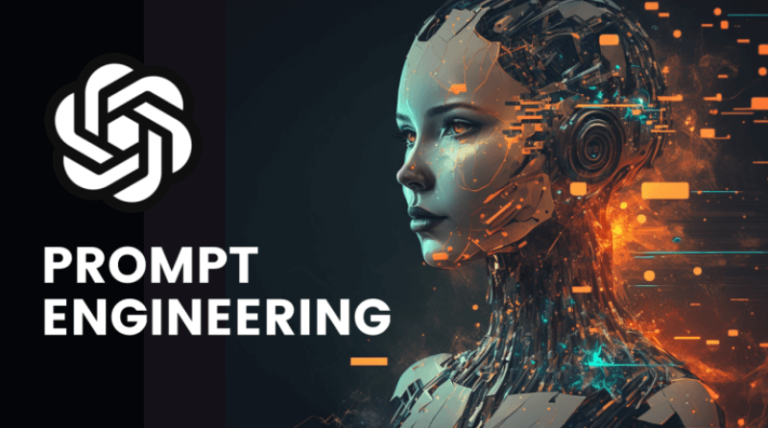AI Applications in Medical Field
Ranging from zoonotic diseases to threats like antimicrobial resistance, desired health outcomes are increasingly becoming a moving target- and an elusive one at that. This is where AI is increasingly helping us to zero in on our health-related goals and here we’ll be looking at ten applications of AI in medicine and health.
Table of Contents
AI Applications in Medicine
1. Robotic Surgery
Accuracy and precision are the two fundamental components of surgery. AI, being adept in both, has been widely deployed to assist in robotic surgery in a number of state-of-the art hospitals in the US.
AI systems have been used to precisely control the trajectory, depth, and speed of surgical robot movements. AI-powered Surgical Robots, unlike their human counterparts, can function without becoming tired and are thus well-suited for treatments that need the same repetitive movements for extended periods of time.
Application
Institutes like the Mayo Clinic in the US use of the Da Vinci Surgical System, a robotic-assisted surgical device that allows healthcare professionals to carry out complex operations in a more accurate and precise way.
2. Precision Medicine
Precision medicine refers to custom made treatment plans that exclusively tailored to the needs of individuals or groups after genetic and molecular profiling to get to desired health outcomes. Large chunks of complex data are processed and analysed by AIsystems to identify patterns for personalized treatment for the patients
Application
Microsoft’s Project InnerEye uses computer vision and machine learning to distinguish between malignancies and healthy anatomy using 3D radiological images, this helps medical professionals to plan radiotherapy and surgery.
3. Electronic. Health Records (EHR)
Health Records often used to be disorganized, lost or mishandled. Not Anymore. An electronic health records are,as the name suggests, an electronic version of a patient’s medical records that is maintained up to date by clinicians or healthcare providers.
These records include all the administrative and clinical data pertinent to the patient’s care. Because Machine learning and AI help in managing and analyzing medical data to give better insights into the patient’s condition, they are most used for maintaining records of medical history.
Application
The Massachusetts General Hospital Clinical Data Science Center is a founding technology partner with NVIDIA, the Center acts as a focal point for artificial intelligence applications in healthcare for the detection and diagnosis of disease, its treatment, and management. The center uses AI in radiology and pathology.
4. Genome Sequencing
Genomics is a branch of molecular biology catering to genome structures, functions, evolution, and mapping. AI has made notable contributions to genomics and genome sequencing. Besides accelerating the pace of scientific discovery, it also helps in genome assembly, identifying the differences between genome variants, and development of new drugs and therapies based on genomic data.
Application
The AI-powered MendelScan tool leverages ML algorithms for analyzing genetic data and looks for probable disease-causing mutations. MendelScan can also estimate the probability that a specific mutation is responsible for a patient’s symptoms thereby enabling informed treatment pathways to cure the underlying conditions.
5. ML-based Behavioral Modification
Many companies are now developing AI for inpatient treatment, cancer prevention, and detection. Recently, behavioral modification has become a new area for AI applications. Behavior modification is a psychotherapy strategy that is mainly used to stop or lessen inappropriate psychological conduct in children and adults. A Machine learning algorithm can make recommendations for necessary modifications based on analysis of past behaviors of an individual. For example, an ML algorithm can predict the likelihood of a person smoking simply based on their demographic and behavioral data.
Application
The smartphone application, SkinVision leverages machine learning and AI for healthcare for behavioral modification to help users monitor and spot early indicators of skin cancer This app can analyze photos of skin lesions using algorithms and gives users a risk estimate of their skin lesions.
6. Medical Imaging Diagnosis
The advancements in medical imaging allow newer medical devices for CT scans, MRIs, and X-rays to be used by radiologists which can provide better images of where the problem lies. Hundreds of histopathological images are routinely evaluated and labeled by pathologists to understand the problem of the patient. An AI application can take care of this job and accurately diagnose it to help assess the complications uncovered by medical imaging. AI can be used to identify cardiovascular issues like atrial enlargement, valve analysis and other similar medical situations
Application
UCal’ San Fransico Medical Center uses machine learning models and AI technology called Clinicai. This AI-powered system uses deep learning algorithms to analyze medical images and furnish diagnostic recommendations to radiologists.
7. Oncology Research
Cancer has driven up and mortality rates all over the world. Applications of AI in oncology include improving clinical practice, enhancing cancer research, better-comprehending tumor features, optimizing cancer patient outcomes, and predicting treatment response. Natural language processing helps in the identification of relevant articles and research papers, thus reducing the time and effort required to look up treatment options.
Application
Pfizer is one of the world’s leading pharmaceutical companies. It has collaborated with IBM Watson AI to advance its oncology research. The collaboration accelerates the drug discovery process, and immuno-oncology research, which improves the outcomes for cancer patients.
8. Improved Radiology
Radiology is the field in the healthcare industry where machine learning and AI are most in demand. Discrete variables, like tumors, lesions, and foci, may appear in medical image analysis at any time. Diagnosis and identification of these factors are more straightforward since the algorithms learn from the various available samples. With the help of ML and AI, it is possible to simulate their locations accurately.
Application
Mount Sinai Health System in NYC uses AI-enabled radiology is used in numerous healthcare institutions. AI is used here as a “second opinion” to a radiologist for the detection of COVID-19 in patients’ CT scans. This healthcare system is designed and developed by health-tech startup Synapsica, which provides holistic AI-enabled diagnostic radiology technologies.
9. Clinical Trial Optimization
Clinical studies take years to complete. It costs a lot of money and effort and is often labor-intensive. ML-based predictive analytics helps researchers create a database of potential clinical trial participants to discover individuals from various data sources, including prior doctor visits, and social media.
Application
Medidata is a unified life science platform, that utilizes machine learning and AI for healthcare to combine data and AI-powdered insights to optimize clinical trials and patient-focused breakthrough therapies. The platform also benefits from Rave electronics data capture to harness chunks of big data for trials.
10. Predictive Analytics
Predictive analytics of medical data is yet another common application of AI and ML. The algorithms can analyze large volumes of datasets to identify patterns and trends. These insights can be further used to make predictions about future events. This helps future at risk of developing chronic illnesses like diabetes or heart disease, to name a few.
FAQ
Robotic Surgery, Genome Sequencing, Machine-Learning based behavioralmodicfication and Predictive Analytics are some examples of applications of AI in medicine.
AI can assist doctors, not replace them.





